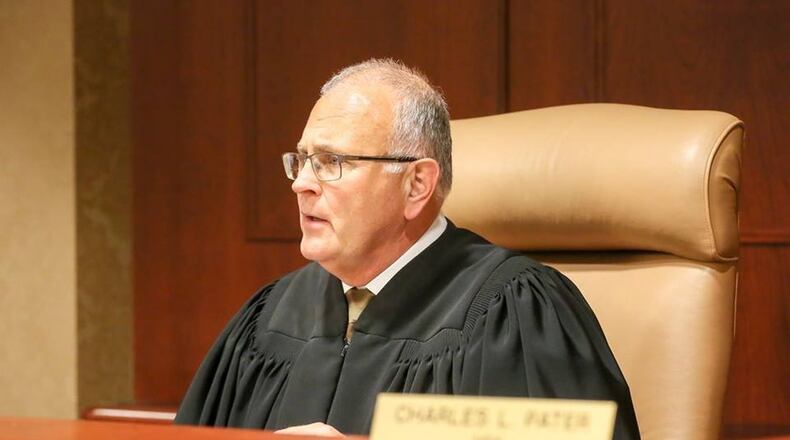The recusal from that re-sentencing has also led Pater to say he will recuse himself from certain types of sex cases in the future.
Dustin Lawrence was convicted following a jury trial of gross sexual imposition, rape, kidnapping and domestic violence in 2017 and was sentenced to 33 years in prison by Pater. During a motion to have his sentence reconsidered by the judge based on mistakes made in the pre-sentence investigation report regarding Lawrence’s criminal history, Pater said he was going to agree to the re-sentencing.
MORE POPULAR STORIES
• Her cancer diagnosis rocked her family. Then the Madison community responded in beautiful ways.
• From the archives: Do you remember these old Hamilton businesses?
• New sandwich shop opens in Liberty Twp. with free sub fundraiser deal
He said that he might have been too harsh in his sentence because of the personal situation in his family, according to prosecutors. Pater agreed to recuse himself from re-sentencing based on his statements.
“The state believes it has a legal and ethical duty to inform you of this recusal,” Gmoser wrote in a letter to defense attorneys.
He said he has a obligation for disclosure because of rules governing exculpatory evidence that must be turned over to the defense.
“The family occurrence occurred 10 years ago, so we have a 10-year period of time when potentially the judge, by his admission, has harbored a bias with respect to these types of cases therefore under those circumstances … I am required to go back through those cases and sent letters to the attorneys and defendants,” Gmoser said in an interview with the Journal-News.
The entry of recusal signed by Pater does not use the word “bias.”
“Upon further reflection of … statements in chambers to counsel on Oct 24, 2018, specifically, that a family member had been a victim of a similar crime, which may have impacted the court’s original sentencing determination, hereby recuses himself from further hearing …,” the entry from Pater states.
The re-sentencing of Lawrence was reassigned by administrative Judge Jennifer McElfresh to Judge Greg Howard, who set a hearing for March. But the reason for the re-sentencing is not due to the recusal, but the pre-sentence report errors, according to court records from Howard.
Pater said in an interview with the Journal-News that when the case came back to him for post conviction relief he told the prosecutor’s office appellate division and the appellate attorney in chambers he had rethought the sentence.
“I indicated that there was something else mulling around in my brain and that was I had had thoughts since the sentencing that the sentence was perhaps too high, too stiff, too many years,” Pater said “That wasn’t the driving factor (for the re-sentencing) but the fact that there were legal problems did give me a opportunity to reassess that length of time that I gave him.”
Pater said he has never tried to hide his own personal family background from attorneys, “but I don’t talk unnecessarily about it .”
He added that with the exception of this case which gave him a “nagging feeling” upon reflection, he as never knowingly done anything unethical in a case.
“Don’t have a sense that I have ever done anything ethically wrong, this is the one time that I have had that kind of a sense and it so happened that this case came back and it so happened there was also problems in PSI that I relied on.” Pater said
Gmoser said the recusal may not just effect sentences.
“That bias may not just go to sentencing,” he said. “That bias may go to anything with respect to the trial in that case when it comes to objections, admissibility of evidence. But it is up to attorneys and defendants to file motions for remedy in individual cases.
In a letter sent by email Tuesday, Pater said he will recuse himself in the future from similar sex cases.
“I decided that it would be best if I were to recuse from presiding over cases in which male defendants are charged with forcible rape of females in their teens and early 20s. These cases are a small percentage of the sex offense cases typically indicted and tried in the court of common pleas. I see no reason, generally speaking, to recuse from any other type of sex offense.” Pater said.
About the Author

